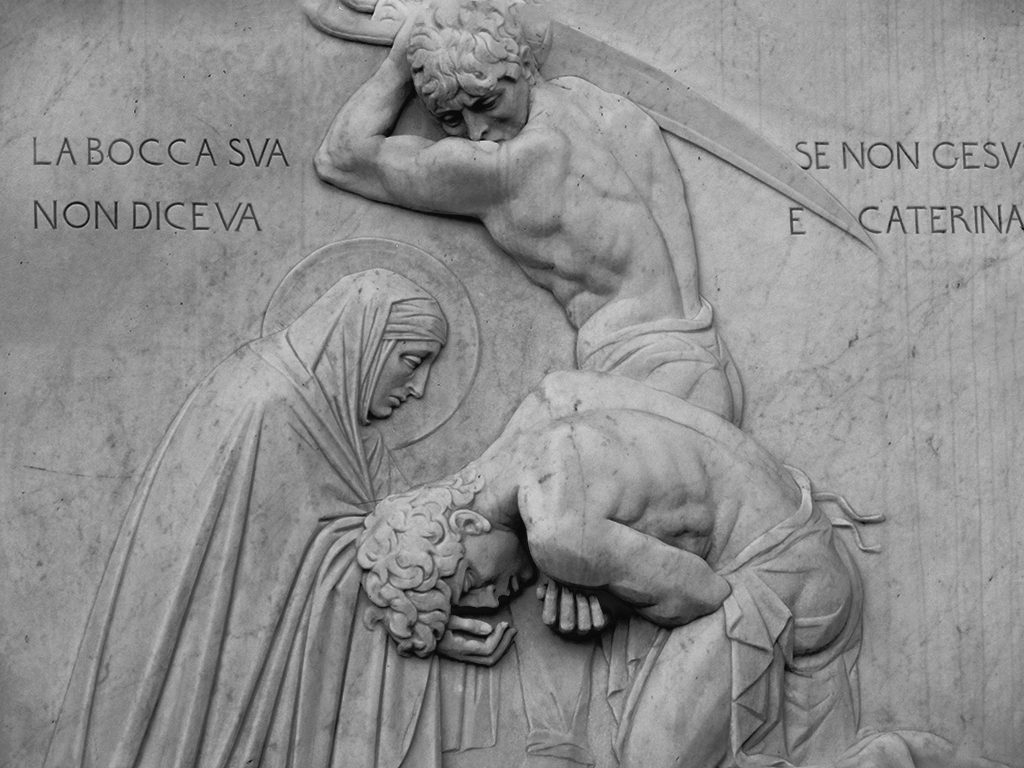The Other Woman
(This past Easter marked the 30th anniversary of my entrance
into full communion with the Catholic Church.
I’'ve been trying to record a few memories and reflections of both the occasion
and the time since.)
A challenge

 I’ve mentioned a couple of women
instrumental to my conversion,
but I put off mentioning one of the more important ones,
someone who made a lived Catholicism visible to me.
We met in college.
We had been friends, then more-than-friends, then friends again.
At that point I discovered a brokenness I didn’t realize I had,
an angry stupidity that she somehow tolerated and forgave,
over and over, until I shattered completely and we agreed not to speak at all.
Though to be honest, it was less an “agreement” than it was my resolution,
accompanied by an unkind gesture.
All in vain — it left me no more at peace than before.
Some months later, I wrote a letter of apology —
at least I think and hope that letter included an apology.
To my surprise, she wrote back with a kind letter of forgiveness,
though with her customary grace, she managed to word that message
without quite using those words, as I recall:
she simply forgave me, and we were friends again.
Shortly thereafter I traveled across the country to graduate school.
We continued to correspond, and at some point we began to discuss religion.
I expressed my difficulty with the idea of Purgatory,
to which she replied not with learned arguments or profound insights,
but simply,
I’ve mentioned a couple of women
instrumental to my conversion,
but I put off mentioning one of the more important ones,
someone who made a lived Catholicism visible to me.
We met in college.
We had been friends, then more-than-friends, then friends again.
At that point I discovered a brokenness I didn’t realize I had,
an angry stupidity that she somehow tolerated and forgave,
over and over, until I shattered completely and we agreed not to speak at all.
Though to be honest, it was less an “agreement” than it was my resolution,
accompanied by an unkind gesture.
All in vain — it left me no more at peace than before.
Some months later, I wrote a letter of apology —
at least I think and hope that letter included an apology.
To my surprise, she wrote back with a kind letter of forgiveness,
though with her customary grace, she managed to word that message
without quite using those words, as I recall:
she simply forgave me, and we were friends again.
Shortly thereafter I traveled across the country to graduate school.
We continued to correspond, and at some point we began to discuss religion.
I expressed my difficulty with the idea of Purgatory,
to which she replied not with learned arguments or profound insights,
but simply,
I will pray for you, that you come to understand it.
That may not be verbatim, but it’s awfully close.
I mentioned it to another Protestant I knew, who was less impressed,
but his disdain for her gesture pricked me the wrong way,
and I found myself defending her.
It remained with me, and over the decades that have passed
I’ve become more and more convinced that her prayer helped open my eyes.
We continued to correspond, even during my brief sojourn in a seminary,
as well as the years after.
Her correspondence grew faint some years ago, perhaps once or twice a year at most,
and even that quite short, unlike the longer, thoughtful letters from before.
While that grieves me, it makes sense: she has a large, very Catholic family.
I still hear from her from time to time, and while it never seems enough,
that seems to be the one constant of friendship in this life: it never does seem enough.
If I may misquote Solzhenitsyn:✗The original quote
is from A Day in the Life of Ivan Denisovich,
where the great writer refers to the belly rather than the heart.
Given that Solzhenitsyn was describing life in a gulag,
I hope this does not come across as cheapening Solzhenitsyn.
I’ve come to see the quote as applicable to many, many other situations.
The heart is an ungrateful wretch.
It never remembers past favors, but always wants more.
One of my friend’s many gifts —
all of them awash in faith or reflecting it —
was a month-long sequence of reflections based
on the writings of St. Catherine of Siena.
It was my first serious introduction to that marvelous saint,
whose Dialogue I have been fortunate to read,
even translate a little.
In one of the more fascinating episodes of that saint’s life,
her holiness so charmed a prisoner condemned to death
that he died with the names of Jesus and Catherine on his lips,
his severed head falling (or already resting?) in her arms.
There’s an analogy here, and more-than-an-analogy, though
I can’t find the right words to describe it for now,
in part from respect for my friend’s modesty.
Perhaps the words will come later.